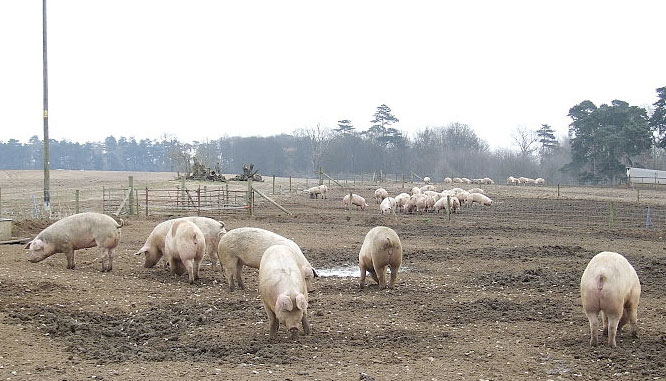
The British pig industry has made huge strides in professionalism — but in some areas it is being sold short by Brussels, National Pig Association chairman Richard Longthorp told MEPs.
He said British pig-keepers were proud of their professional standards and urged others in Europe to adopt and demonstrate similar standards in order to inspire consumer confidence in the safety and wholesomeness of European Union pork.
But in several ways the industry was shackled by a Brussels executive that did not always inspire confidence in producers or consumers, he claimed — citing insufficient checks and enforcement of the 2013 gestation stall ban, and an apparent reluctance to introduce country of origin labelling for processed meats, even lightly processed products such as bacon, ham and sausages.
“We live in an era where consumers have been faced with a host of real and potential issues and continue to seek more assurances regarding food safety, provenance and ethical and environmental criteria,” he told MEPs at a British-bacon-and-eggs breakfast organised by the British Agriculture Bureau in association with the National Farmers Union and the National Pig Association and hosted by Vicky Ford MEP.
“The British pig industry believes Brussels has a responsibility to address any legitimate and evidence-based concerns, but not to kow-tow to the whims of every lobby group around,” he said.
He stressed to MEPs the importance of professionalism in farming. “Being professional is not simply about doing a good job. It’s about doing a job with a high degree of competence that is clearly demonstrable, thereby inspiring confidence.” It was essential, he said, that all food producers inspired confidence in consumers, regulators and society at large.
He highlighted the steps towards professionalism taken by the British industry, including Real Welfare audits, certification of husbandry standards, recording on-farm use of antibiotics and independently-auditing more than 90 percent of pigs for regulatory compliance and good practice.
And in order for people in the industry to demonstrate their growing professionalism, the industry had now introduced a professional register, which recorded the continued professional development of farm staff, he told MEPs. “We in Britain are extremely proud of our professional standards and I would hope that others in the European Union would share our enthusiasm for professionalism.”
Given all these advances, the Transatlantic Trade and Investment Partnership (TTIP) afforded a big opportunity for Europe’s high-welfare pork, but it also posed a threat, he warned. “If internal European Union pork markets are opened up to pork produced to lesser standards and with a consequent lower cost of production there is absolutely no doubt what will happen. European Union pig production will be exported to countries with lower standards. We saw this happen in Britain 15 years ago when we introduced our unilateral stalls ban.”
